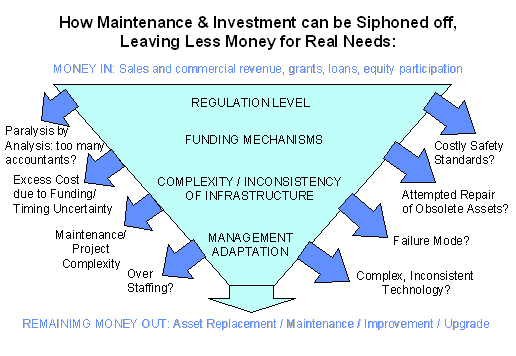Investment, Maintenance and Staffing Study for Major Urban Metros

Objective: To gain insight on comparative levels of investment, maintenance and staffing by functional area within five major participating heavy metro railways
To define comparative levels of investment, maintenance and staffing; to identify best practice ranges; to establish at what point performance begins to deteriorate; to identify the most sensitive functional areas and those where participating metros can best improve performance.
Methodology / Analytics: A detailed examination of data submitted; development of environmental filters; examination of best practice in other industries.
· Quantitative database by asset type on detailed categories of investment, maintenance and staffing.
· Qualitative analysis carried out by means of in-depth interviews and system visits.
· Development of filters to account for environmental differences - funding systems, differences in definitions, engineering standards and accounting practices, capacity utilisation and line usage intensity, use of external contractors and other factors.
· Expert workshops to compare more detailed practice, motivational and organisational environment across metros in specific process areas (rolling stock maintenance).
Results: valuable information for investment and organisational planning
Some Metros have already started to use the information to adjust the focus of their maintenance and refurbishment programmes and in some cases to justify additional investment. Some have incorporated the methods of approach used in the study into their normal reporting process. Finally, some pressed to include the analysis into the regular annual benchmarking programme, which has now been done.
Phase II has split into two separate cases, one considering stations and the other, all maintenance processes in greater detail.
THE RAILWAY TECHNOLOGY STRATEGY CENTRE in the CIVIL ENGINEERING DEPARTMENT, IMPERIAL COLLEGE, Project Manager, R.Hirsch, Director, W R Steinmetz, Chairman, Professor T M Ridley